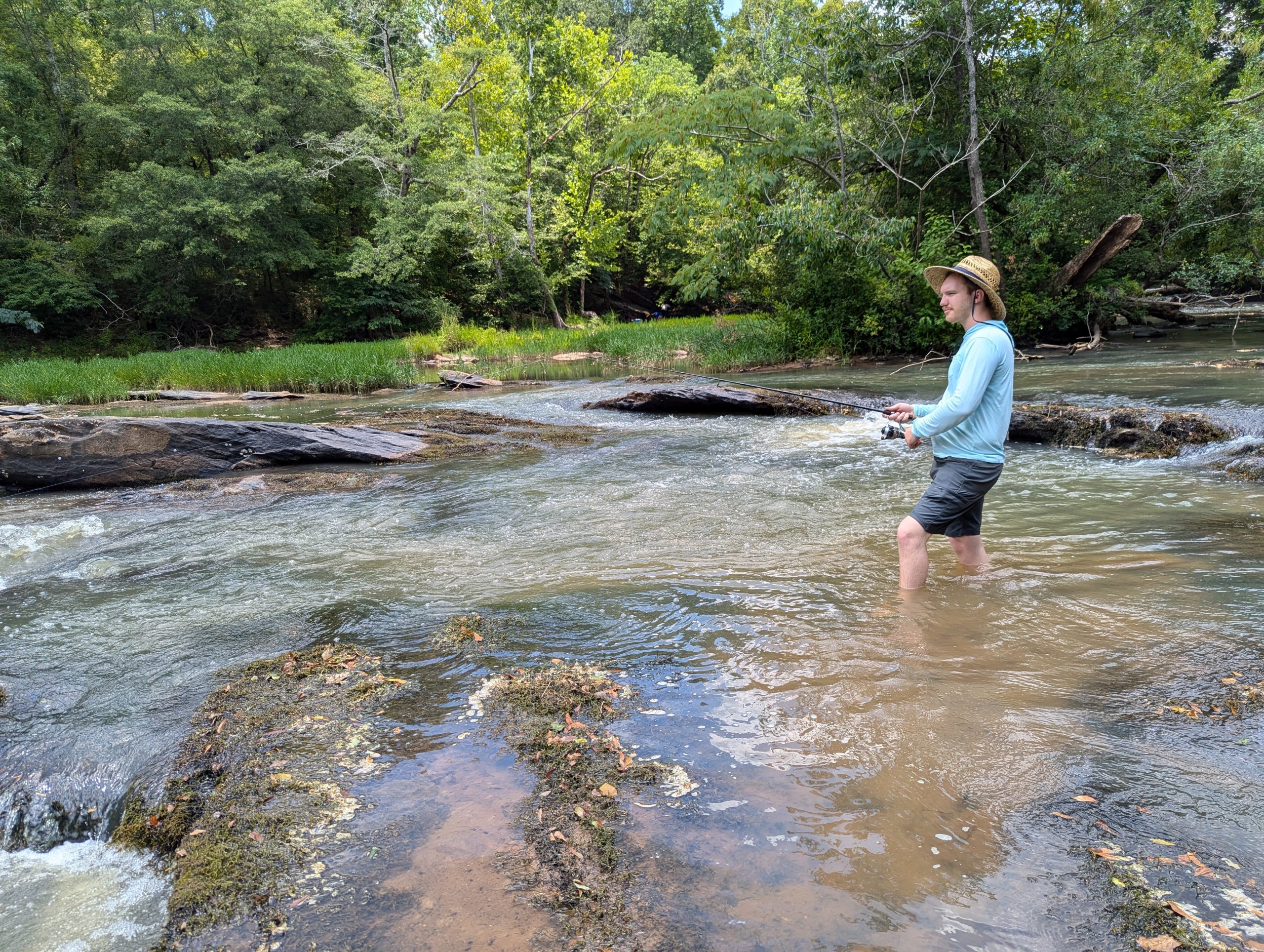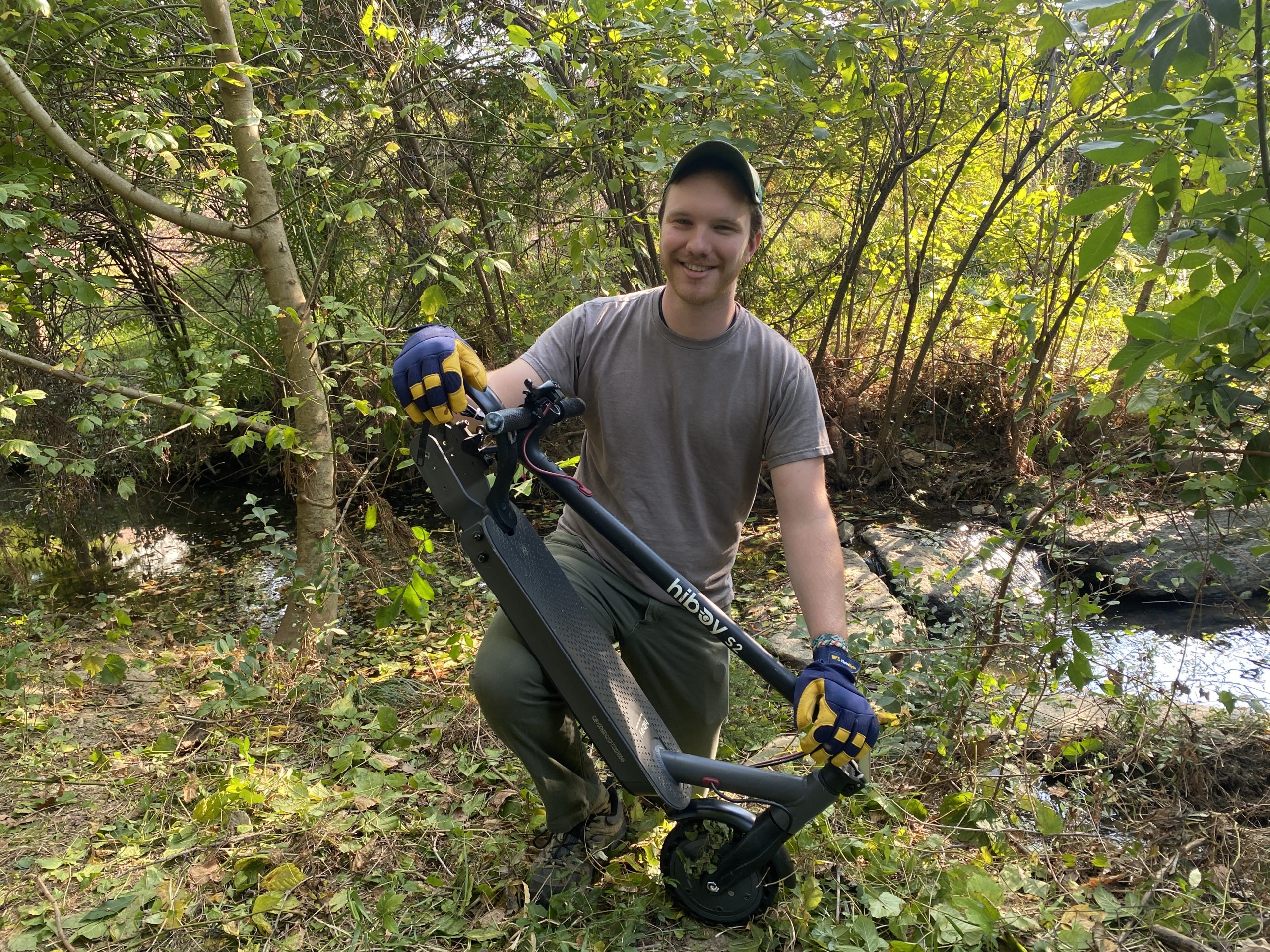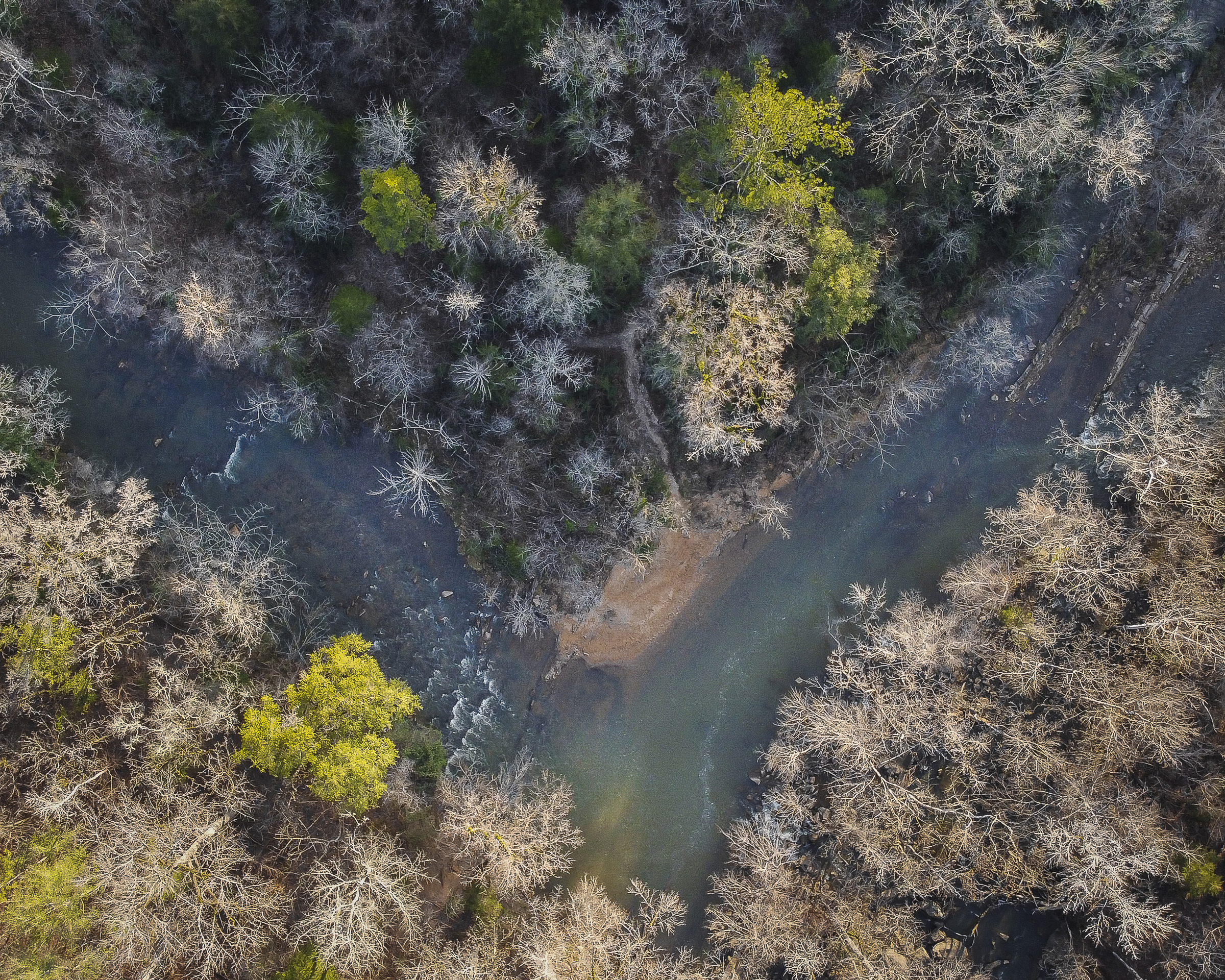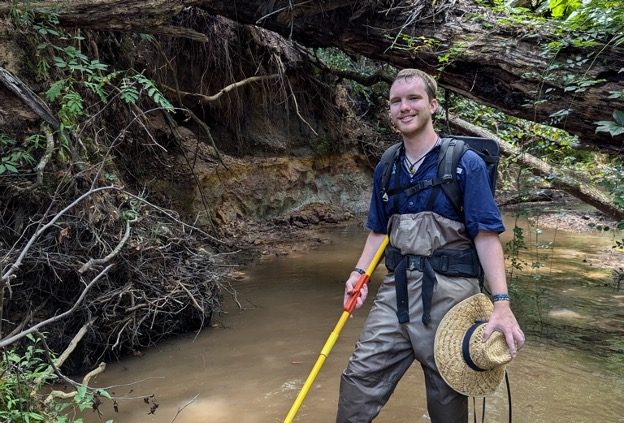Tell us about your background and what brought you to work with the AUWRC?
I’ve got degrees in fisheries and aquatic sciences now, but that wasn’t always what I thought I’d be doing. When I first started my undergrad at UGA in 2016, I thought I was going to be an environmental engineer; 4 classes of calculus later and I decided maybe I’d rather do something a bit more hands-on. I changed my major to Fish and Wildlife Managment with an Aquatic Sciences focus and an Environmental Education certificate from the Warnell School of Forestry (give ‘em hell Warnell).
While there I worked on my thesis which looked at how we age Atlantic sturgeon, and started work at the marine teaching lab where I took care of their animals and helped set up their labs. In my junior year there I signed up for the Georgia Fisheries Field Course for the Maymester, a three week–long intensive field course where we camped and sampled our way from the Blue Ridge Mountains down to the blackwater swamps and the Barrier Islands on the coast. This completely changed my view of what I wanted to do again; showing me first-hand the incredible diversity of native freshwater fish we have in the Southeast, from the bright orange tangerine darter to the massive redhorse suckers.
After graduating from UGA in 2020, I continued work at the marine lab as their full-time lab manager before accepting an offer from Carol Johnston’s Fish Biodiversity lab here in Auburn for a master’s student position. I graduated with my master’s degree this past July, with my thesis studying the effects of Roundup on the reproductive pheromones of native fish.
During one of my classes Dr Eve Brantley was a guest lecturer who showed us the Parkerson Mill Greenway and the restoration work that had been done there. When I graduated, I knew I wanted to go into a position where I could take practical action to help protect the rivers and streams, I’ve studied, and the work WRC does to restore and protect these streams particularly interested me. I’m excited to begin putting what I’ve learned into action!

Daniel on a fishing trip. Photo credit: Daniel Gragson.
What projects are you working on over the next year?
I will be helping on a number of projects, primarily my focus will be on the Parkerson Mill Greenway: maintaining the work that’s been done and coordinating future work to remove invasive plants and litter from around the site. On top of that, I will be helping to write some articles for the WRC website outlining some of the incredible aquatic life around the area and what can be done to protect them.

Daniel removes an electronic scooter from Parkerson Mill Creek. Photo credit: Adam Newby
What are you most passionate about relating to water resources?
Did you know Alabama has the second most native freshwater fish species of any other state? First place is Tennessee and third place is Georgia. This little chunk of the Southeast has more fish species in it than all the other states added together. Pretty much the only place on Earth where you find more biodiversity than this is the Amazon Basin. Not only that but, and this might be slightly less scientific, it also has the most beautiful rivers of any other state.
There is no greater feeling, to me, than wading up a creek and quickly feeling like you’re miles away from civilization, walking the same bedrock and gravel shoals that the Muscogee people walked. During the springtime you can find the rock pile nests of fish where hundreds of minnows will gather to breed, with colors more often seen in reefs. The banks are flush with plants growing over one another, and in their roots are sunfish and bass; the only thing that ruins the experience is the beer cans and garbage floating along.
I can think of no better calling for myself than protecting and restoring these most magnificent of rivers, so that one day my children might be able to see them in their full glory.

Aerial view of an Alabama river. Photo credit: Philip Darden.
Do you have any career or life advice for other people pursuing a career in natural resources?
I have two pieces of advice, and to a certain extent they inform one another. The first is this: every action you take matters, and every choice has consequences.
Too often it is easy to think what you do doesn’t really matter or will not be noticed, but I cannot stress enough that everything you do has an effect, it may not matter until later or be smaller than you expect, but trust me, it all matters.
The second piece is from the principal of my high school: be where you are supposed to be, doing what you are supposed to be doing, on time. I cannot express that despite how simple and obvious this sounds, how much the people you work for and with will notice it.

